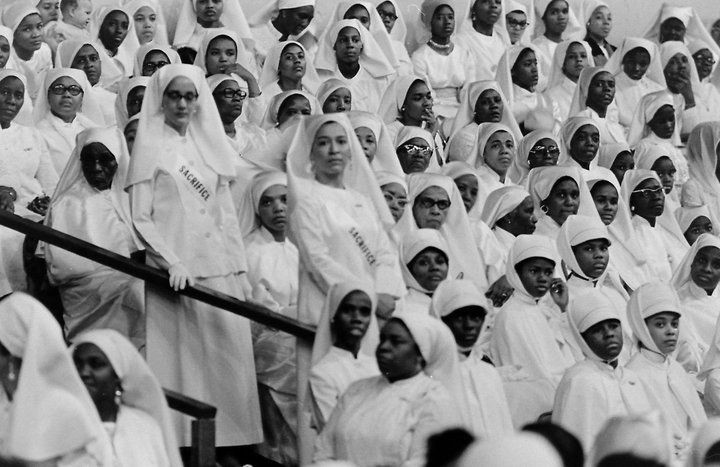I am a 36-year-old Muslim woman and am happily engaged to a wonderful man who I plan to marry this year. I have reached this healthy place after 27 years of depression, self-doubt and subsequent counselling. A major component of my healing has been my autobiography, “Brutal,” a book in which I spare no details and for which I make no apologies. And what compelled me, an ordinary Muslim woman from Midlands, England to share my life story?
I was just seven years old when the Imam at my community mosque, an influential and well-respected man, began to sexually abuse me. He molested me not once, not twice, but on an almost daily basis of four long years.
I had the misfortune of catching the Imam’s attention from the very beginning; he told me I was “special” and “pretty” and singled me out for tasks. Initially, I enjoyed the praise and responsibility, as any child would, but soon felt uneasy when the other children, noticing the favoritism, began to resent me. I also found it strange and unnerving when the Imam would assign me chores that separated me from my peers; while the other children recited Qur’an or said their prayers in one room, I would often find myself alone in another part of the mosque. This, of course, was a ruse to isolate me in order to catch moments with me away from watchful eyes.
I followed his every instruction dutifully, assuming that I was always safe—he ran the mosque with an iron fist and none of the children dared to disobey him. In fact, because I was usually the first to arrive at the mosque, the Imam suggested I use his private quarters to get a headstart on my prayers. And I readily agreed to saying my prayers in his bedroom, never suspecting that this man, who all the adults, including my family, trusted, had sinister motives. But the compliments and favouritism quickly gave way to sexual abuse.
As he continued to molest me, two equally paralyzing emotions took hold: terror and shame. The former kept me from protesting when he would abuse me, and the latter kept me from speaking to anyone about what was happening. I became obsessed with learning to tell time. I would calculate the seconds I would be forced to spend alone with him before the other children arrived. As the abuse progressed, I began to delay entering the mosque until the very last minute possible in order to minimize my time alone with my abuser, but I never lingered outside too long for fear of someone spotting me on the street corner and asking why I was not inside the mosque or with my parents.
Depression became a permanent fixture in my life. Terrorized and alone, I would hide away in the bedroom and cry myself into a state of exhaustion. In a bid to cope, I began to self-harm. Because the Imam always complimented me on my pretty looks, I tried to disfigure myself by inflicting scratches and cuts on my face. In my ten-year-old mind, it seemed logical to assume that if I mutilated my attractive face, he would lose interest in me. I was wrong. He remained undeterred.
The day I completed the program at the mosque, I also washed my hands of Islam. By now anger had seeped in alongside the feelings of shame and depression. I found temporary solace in my rebellion—drinking and smoking—perhaps because I had been helpless for so long, a plaything for someone else, that choosing my own path, however destructive, felt empowering.
But my wild behaviour failed to squash my inner tumult, and I suffered reoccurring nightmares of the sexual abuse. Around this time, my parents learned about the abuse, but chose to turn a blind eye, refusing to take action against the Imam. Their denial and inaction was the final nail in my coffin. Nothing could have made me feel any more worthless than I already did than the confirmation that I was, in fact, “damaged goods” and should hide my shameful secret for the remainder of my life.
Once I graduated from high school, my worry and guilt over the possibility that this man might have gone on to sexually abuse other girls after me supersceded my depression and I decided to become a nursery school nurse, and later chaperone. I felt my training and job would put me in a position to safeguard the children in my care—something no one had done for me.
I went on to put my story on paper by working with a ghost writer to produce the biography “Brutal.” When I had felt I could not confide in a friend of family member, I had found comfort in reading the survival stories of other sexually abused women, but the material did not truly resonate with me because I had found nothing written by a Muslim woman. This is precisely why I decided to bare my life story without apology or reservation. “Brutal,” which is now being made into a film, and the children’s book I am currently working on are both endeavours which I hope will give some measure of comfort and guidance to victims of sexual abuse, particularly those who are Muslim. I also speak at length in “Brutal” about the specific steps Muslim communities and families can take to protect the most vulnerable among them—their children. These writings have been my saving grace and I pray that they serve as one more push in the fight to eradicate sexual abuse and paedophilia. In the meantime, the police continue to investigate my case and God willing I will write another book when justice is done.
Harper Collins released “Brutal” in April of 2012. The book is currently being translated into multiple languages and is available through www.amazon.com. Nabila Sharma can be reached via Facebook (Dear Nabila Problem Page) or at nabilasharma@hotmail.co.uk.
Zehra Rizavi is a managing editor at Altmuslimah.
















